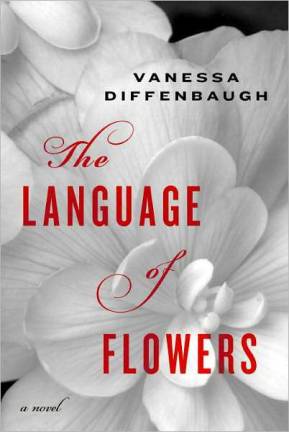Book Review: The Language of Flowers

The Language of Flowers is a bit like a perfectly manicured flowerbed: the symmetry and colors are breathtaking, but the work shows. In Vanessa Diffenbaugh's debut novel, recently emancipated foster child Victoria strikes out on her own with almost no skills, interpersonal or otherwise, except for a deep connection to the Victorian language of flowers (thistle means "misanthropy"). Alternating with her tale of personal growth are her memories of the year she spent with single foster mother Elizabeth, the woman who taught her that flowers mean something.
Flowers has beautiful, delicate prose, as fragile as spring shoots, but Diffenbaugh's dialogue is just as flowery as the bouquets Victoria custom creates for an increasingly large clientele of well-to-do San Franciscans. Everyone is eager and ready to come to the aid of the prickly Victoria, including a quiet flower market worker who has a connection with her past, and the harried Renata, who hires the homeless Victoria for her skills. Diffenbaugh is talented enough to make us care about Victoria, even as her behavior turns increasingly self-destructive (when has the heroine of a novel ever slept so much?), but the exchanges between characters have a dream-like quality at odds with Victoria's hard-knock life. And by the time repetitions and motifs start appearing like the thorns on a rose, one is tempted to toss the novel down for something a little less heavy-handed.
Patient readers who stick with the book will be rewarded, though the happy ending that eventually arrives with Victoria seems to bear a closer relation to wishful thinking than reality. Victoria never takes the easy path when there's a rougher one available, but too much of Diffenbaugh's novel hinges on testing her reader's willingness to still like her heroine. That we mostly do is a testament to the powers of an intriguing new voice.